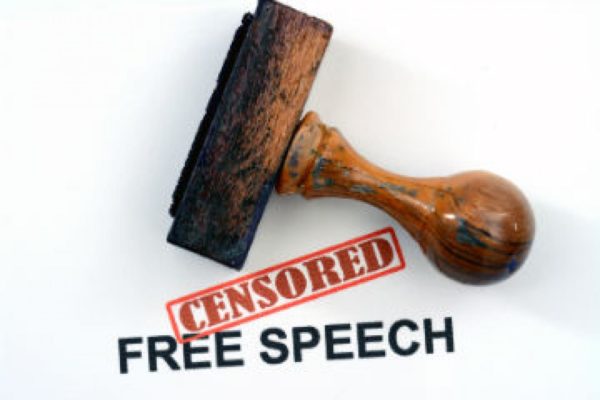The events of the past week in Paris have been rightly interpreted not simply as an act of terrorism, but as an outright attack on the most fundamental value in a free society the right of free speech and free expression of ideas.
Freedom is grounded in the idea that unfettered expression is essential to maintaining freedom and avoiding the onset of tyranny, even when it might be offensive to some or many segments of a society.
As we condemn the events in France, we should also ask what sorts of threats to freedom of expression exist here in the United States.
During the past two or three years, there have been a significant number of events in which the freedom to express ideas publically has been threatened or even shut down.
For example, Condoleezza Rice was recently invited to give the commencement address at Rutgers University, only to withdraw because of student protests and opposition in the faculty council.
This was unfortunate in many ways.
Rice should not have withdrawn because of her being a distraction universities are all about distraction, challenging ideas and encouraging people with different opinions to think in new ways.
Perhaps there is no better context to do this than a graduation ceremony, because we not only celebrate the accomplishments of students, but also celebrate the ideal of the university as a bastion of intellectual freedom and creativity.
And while the students and faculty members were right to express their disagreement with Rice’s politics, they were wrong to object to her giving a speech. We may disagree with her ideas, but they are still ideas that should be heard and contemplated, even by those of us who don’t particularly like them.
The Rutgers case is only one among many during the past few years in which invitations to provocative individuals have been withdrawn under pressure.
In today’s society, there seems to be little attempt to understand opposing ideas. Just think about Congress, which, with its intransigence on both sides, sets a bad example for our society as a whole, an example that many Americans seem to be emulating.
The attack on Charlie Hebdo is different from these types of attacks because of the vicious level of violence, but the motivation to shut down freedom of expression exists in both places.
Incidents here and abroad that attempt to shut down free expression of ideas do not usually involve the type of physical violence and overt disrespect for freedom of expression that we see in the attack in Paris. But they are a form of violence against freedom of expression.
They represent intellectual violence and a covert disrespect for the basic tenets of open expression of ideas that are central to a functioning society that values freedom.
Those who feel a sense of accomplishment in having a speaker with offensive ideas run out of town, who shout down a disliked perspective on the world, or simply imagine the political or religious other as an evil, immoral or corrupt individual with evil, immoral and corrupt ideas should think carefully about what happened this week in Paris.
Most of us have these moments when we vilify the opposition. We should make sure that they are fleeting and do not interfere with the most fundamental value of a free society: that while we may disagree on what to say and what matters, we agree and value the idea that all should have a right to express their opinions about what matters without being subjected to either overt, physical violence or covert, intellectual violence.
John W. Traphagan is a professor of religious studies at The University of Texas at Austin.
A version of this op-ed appeared in The Oklahoman, Dallas Morning News and the Austin American Statesman.
Related op-ed on Texas Perspectives:
Stereotypes and Misperceptions about Veterans Hurt Employability, and That Needs to Stop
What the Fall of the Berlin Wall Can Teach Us Today
Smarter U.S. Prostitution Laws Would Help AIDS Fight
To view more op-eds from Texas Perspectives, click here.
Like us on Facebook.
Share this story on Twitter:
@LiberalArtsUT prof: “While we may disagree, we must agree that all should have a right to express their opinions” http://t.co/xaoPpBPxAo
— Texas Perspectives (@TexPerspectives) January 16, 2015




